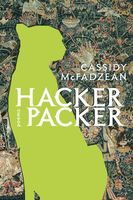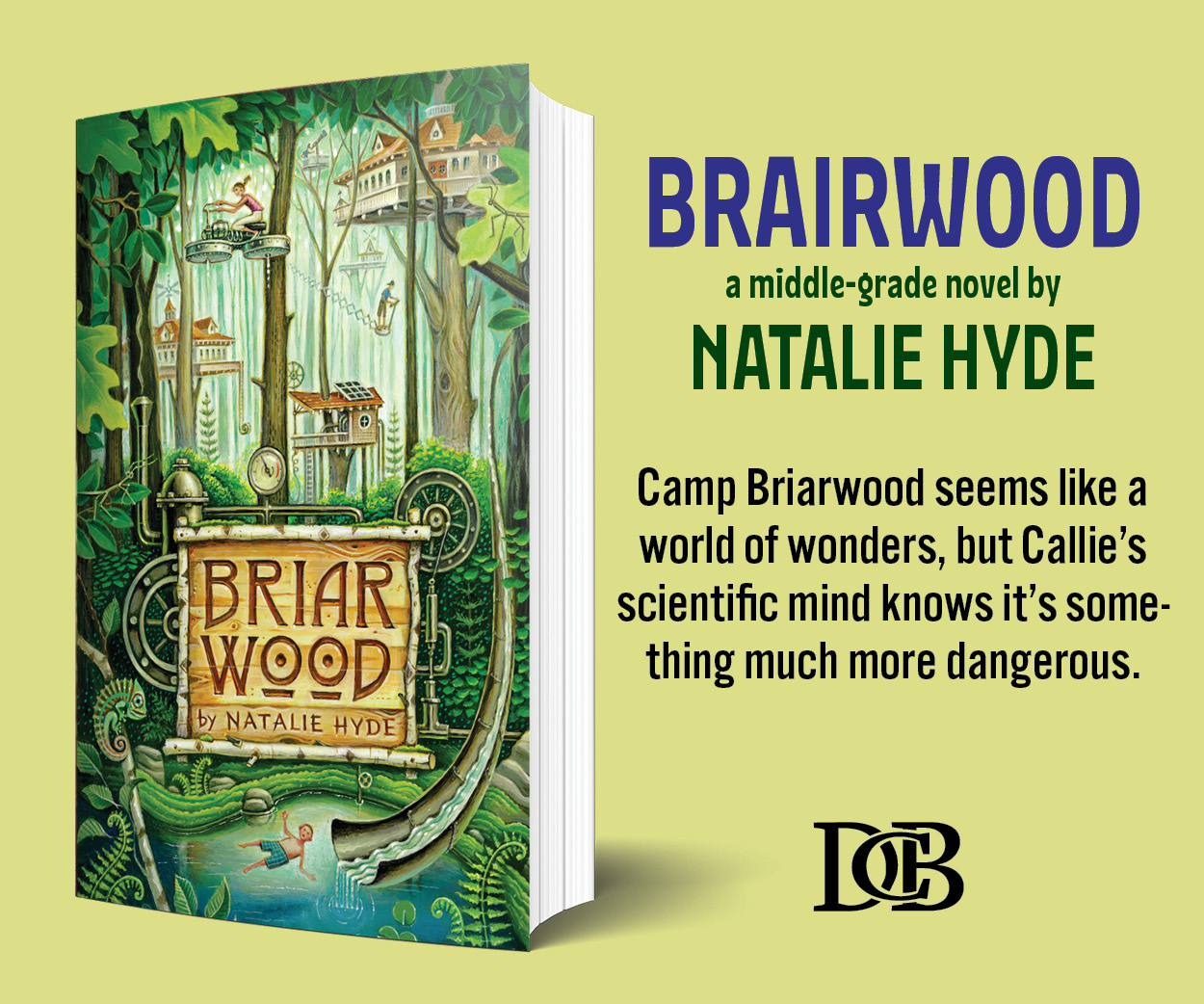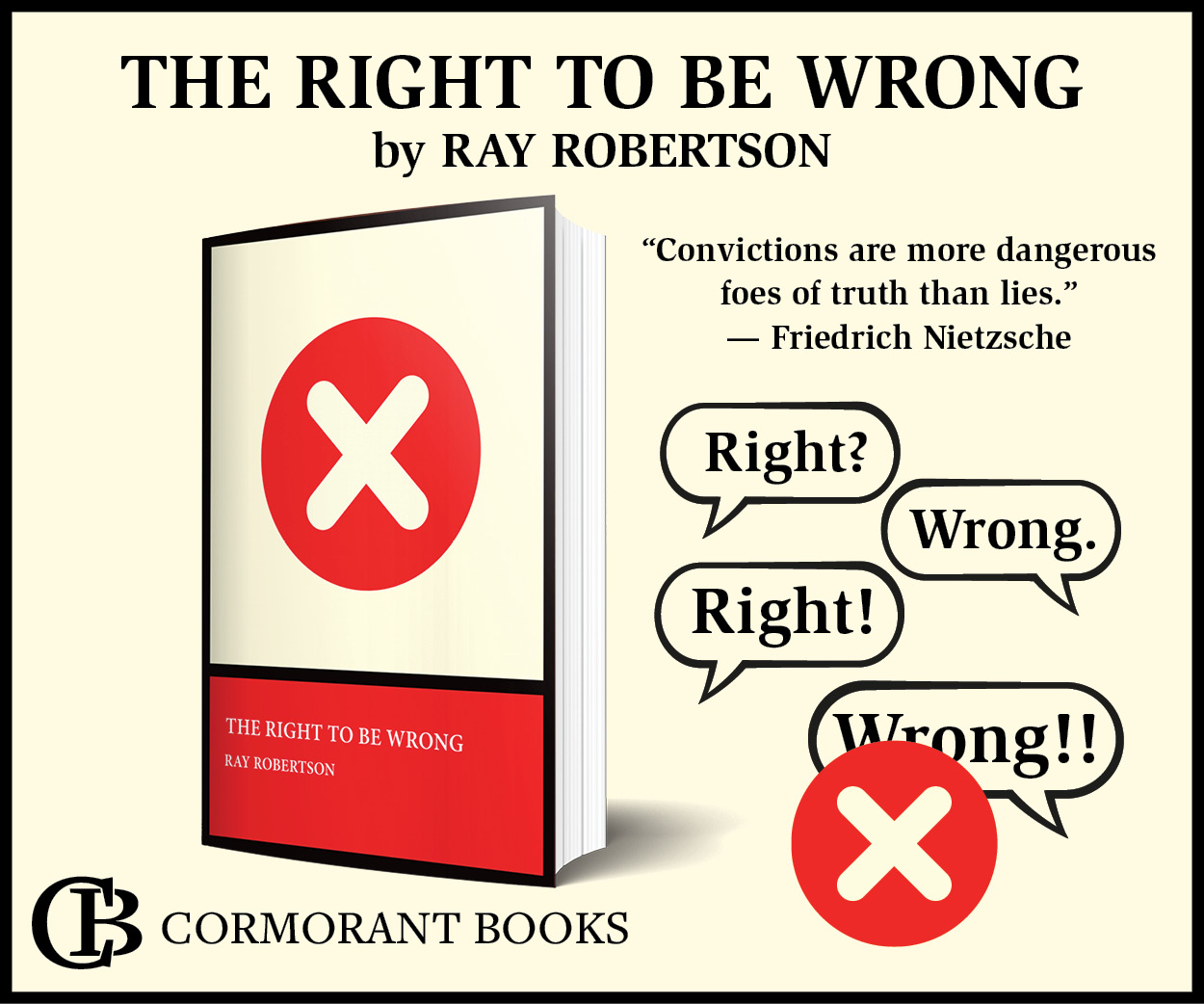When I Read a Really Amazing Poem It Feels like It's Working Some Sort of Magic on Me, an Interview with Cassidy Mcfadzean
By James Lindsay
Hacker Packer, the debut collection from Cassidy McFadzean, is a wild destination wedding between the colloquial and the archaic. So much is happening at this party, one is tempted to slow down, even retrace their steps in order to try and savour the atmosphere as much as possible so nothing is lost. Rich, dense imagery and language is heaped layer upon layer, much like the intricate tapestry that adorns the book’s cover. And it is tempting to consider these poems closer to visual art as themes bleed together like the characters in a Hieronymus Bosch scene. European travelogs seep into Regina pastorals and riddles rub up against borrowed lines from pop songs. Hot off the heels of her Banff residency and a City of Regina Book Award, we discussed language, narrative and the influence of travel and music on her writing.
James Lindsay:
Many poems in Hacker Packer concern travel, but more specifically, concern travel as the tourist. Visiting galleries, museums, the Vatican, and other cultural sites as an outsider, a guest, sets an exploratory tone for the themes of these poems. What do you think it is about travel and tourism that you find so inspiring?
Cassidy McFadzean:
I think travel for me creates a kind of estrangement from everyday life that is generative to writing poems. Being in a place where I don’t belong highlights a feeling that I frequently have that the world is intrinsically absurd and unsettling. There’s also something addictive about going to art museums as well; I love finding ridiculously weird Medieval paintings or Greek sculptures, but I also love the boredom of being in galleries, the limitations of being stuck in a building for a set amount of time with nothing but my thoughts, iPhone notes app and a fixed set of paintings on the walls.
Lindsay:
Like the app notes and the paintings there's a play in the language of Hacker Packer between modern and old, common and uncommon. For example, from "The Bone Chapel," in the line "The friar's hologram greets us thusly", you have a form of technology (the hologram) performing customer service (greeting visitors at the Bone Chapel); the image is of something traditional (a friar), and it ends using a dated term (thusly). What kind of roll does language play in your writing process? Do you start with it in mind, or is it something that comes later?
McFadzean:
Writing poetry for me initially came from an interest in language, and the realization that poetry—moreso than other genres—has a capacity to privilege language over narrative. I love etymology, puns, archaisms, and a lot of my lines are guided by sound play, rhythm, and rhyming that flits in and out. Sometimes a poem will begin with a line, but revision is a large part of my writing process, and I’ll rework a poem until each line is charged with a particular feeling or tone. I consider some of my poems to be treasuries of strange words and bits of language that I want to preserve.
Lindsay:
When privileging language over narrative, what kind of roll does narrative end up playing for you? How does it affect the movement of the poems?
McFadzean:
When narrative appears in my poems, it usually emerges in some form of mythology—sometimes this is classical and allusive, and other times it’s the subconscious grounds of personal mythology. I’ve always been drawn to interwoven symbolism, imagery, and metaphor and I find that when working in terms of musicality and sound, this allows for more surprising connections than if I had set out with something in mind. Some have commented that my poems have an effect similar to following Google links down a rabbit hole, but I also think there’s something behind what at first seems tangential.
Lindsay:
It seems like Google is having an influential moment with poetry, or maybe it's just poetry mimicking the way web browsing works: its immediate and associative way of delivering information lends well to the way certain kinds of poetry strives to make surprising, epiphanous connections. In terms of your own work, what is that hides behind the tangential?
McFadzean:
My experience definitely resonates with the latter; I wouldn’t be surprised if the emergence of the Internet in my formative years has had an effect on my linear thinking in some way. But at the same time, I wonder if the highly associative poems of, say Ashbery or Lucie Brock Broido, suggests that poetry has been up to these kind of connective threads for some time. I think in my own poems, associations come from etymology, history, or even allusion—a rhyming of thought—in which different images echo one another, and can offer the same kind of pleasures of recognition as sonic rhyming.
Lindsay:
It's often on this level—"the rhyming of thought"—that poetry becomes hardest to talk about. To some this operation is psychological, to others it's a form of practical magic, but there's an informal consensus that metaphysical underpinning is a common quality in poetry, and maybe all art, too. How do you recognize this in you own work and in the work of others? Is it something that can be strived for?
Your CanLit News
Subscribe to Open Book’s newsletter to get local book events, literary content, writing tips, and more in your inbox
McFadzean:
I definitely think that when discussing poetry—whether teaching, or even in this interview—it often feels like reaching around in the dark. But that’s what makes poetry so appealing to me—that it isn’t strictly logical. I love your description of practical magic too. When I read a really amazing poem, it feels like it’s working some sort of magic on me, and I hope to create that spellbinding effect in my own work too. For me, this means opening myself up to the subconscious, and recognizing sonic and symbolic patterns. Tarot cards, Ouija board, and haunted mirrors can really help too!
Lindsay:
Do you have any rituals, magical or not, that you practice in preparation to write?
McFadzean:
I’ve found I do my best work in the mornings, and whenever I’m stuck I just return to reading for a few days or weeks. I also always listen to music when I write—usually Drake, Joanna Newsom, Björk, or Boards of Canada on repeat.
Lindsay:
I read in another interview about pop music's influence on you. What is it about pop music that lends itself to your state of mind when you write?
McFadzean:
I've always been a fairly serious, sensitive person, or as my grade nine English teacher termed it, "melancholic." Maybe pop music is a good salve against taking myself, or my work, too seriously. On the other hand, I take my love for pop music very seriously; pop artists are phenomenal songwriters and I hold particular envy for Drake's hooks and ridiculous rhymes. Revising takes so much sustained and concentrated mental energy for me that it’s helpful to listen to something energetic.
The views expressed by Open Book columnists are those held by the authors and do not necessarily reflect the views of Open Book.
James Lindsay has been a bookseller for more than a decade. He is also co-owner of Pleasence Records in Toronto, a record label specializing in post-punk, odd-pop and avant-garde sound pieces.



